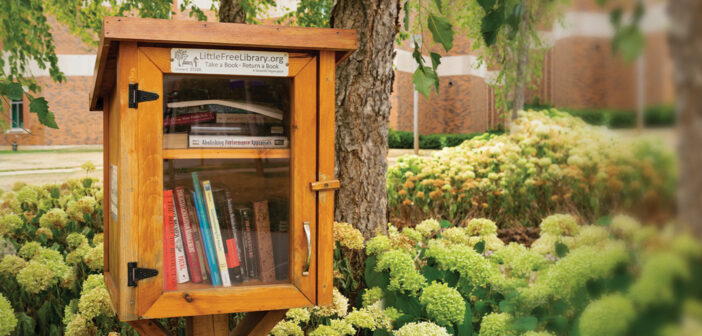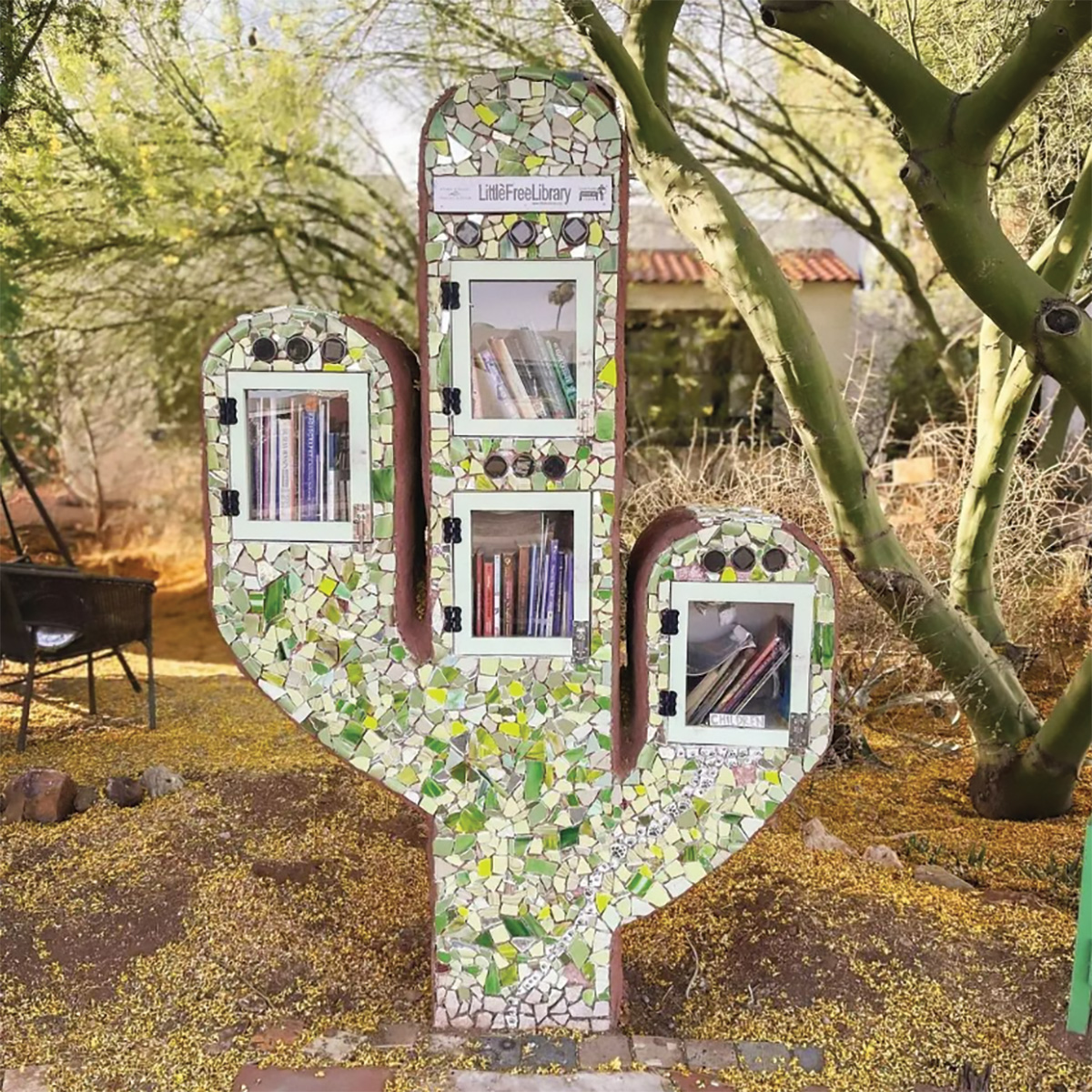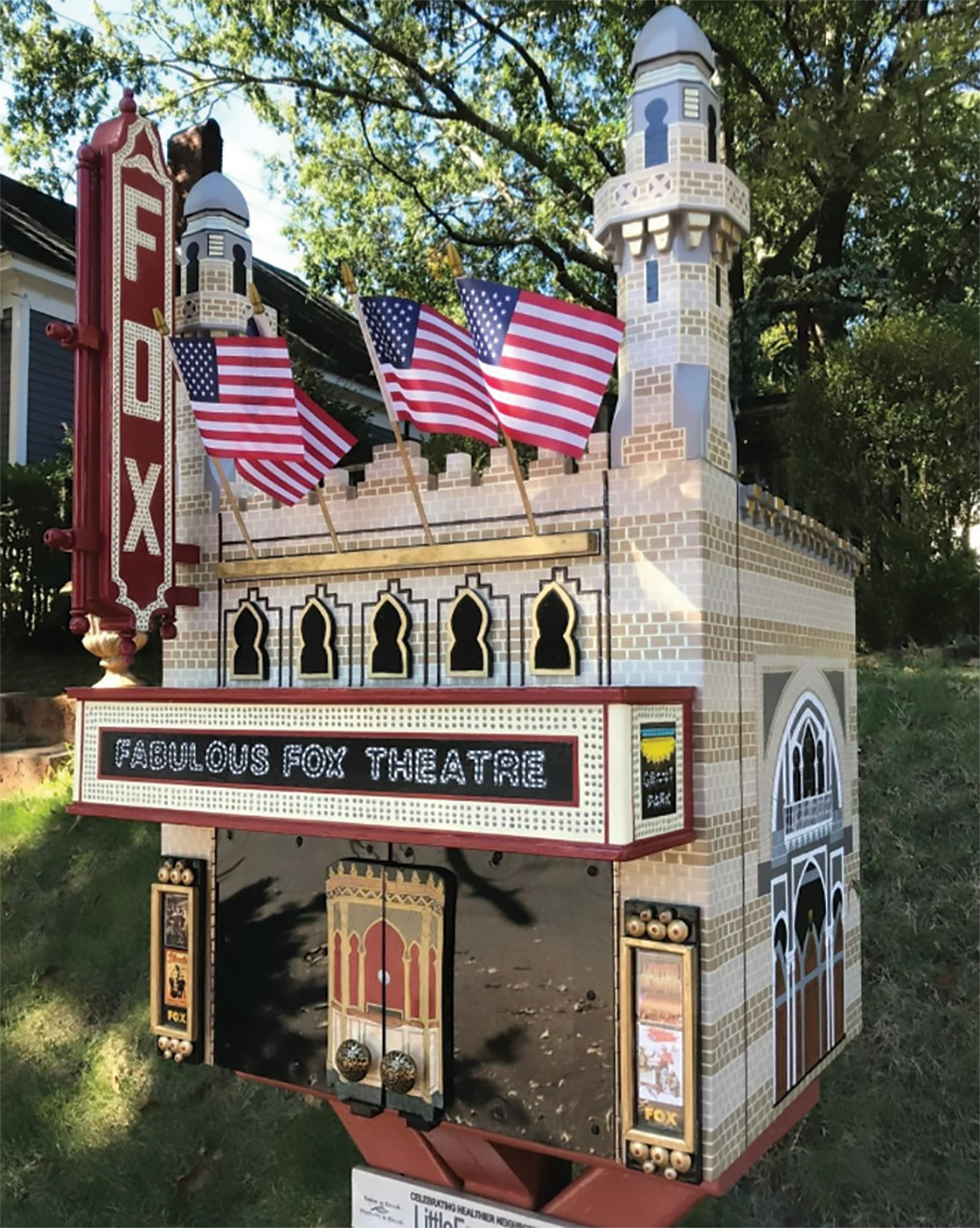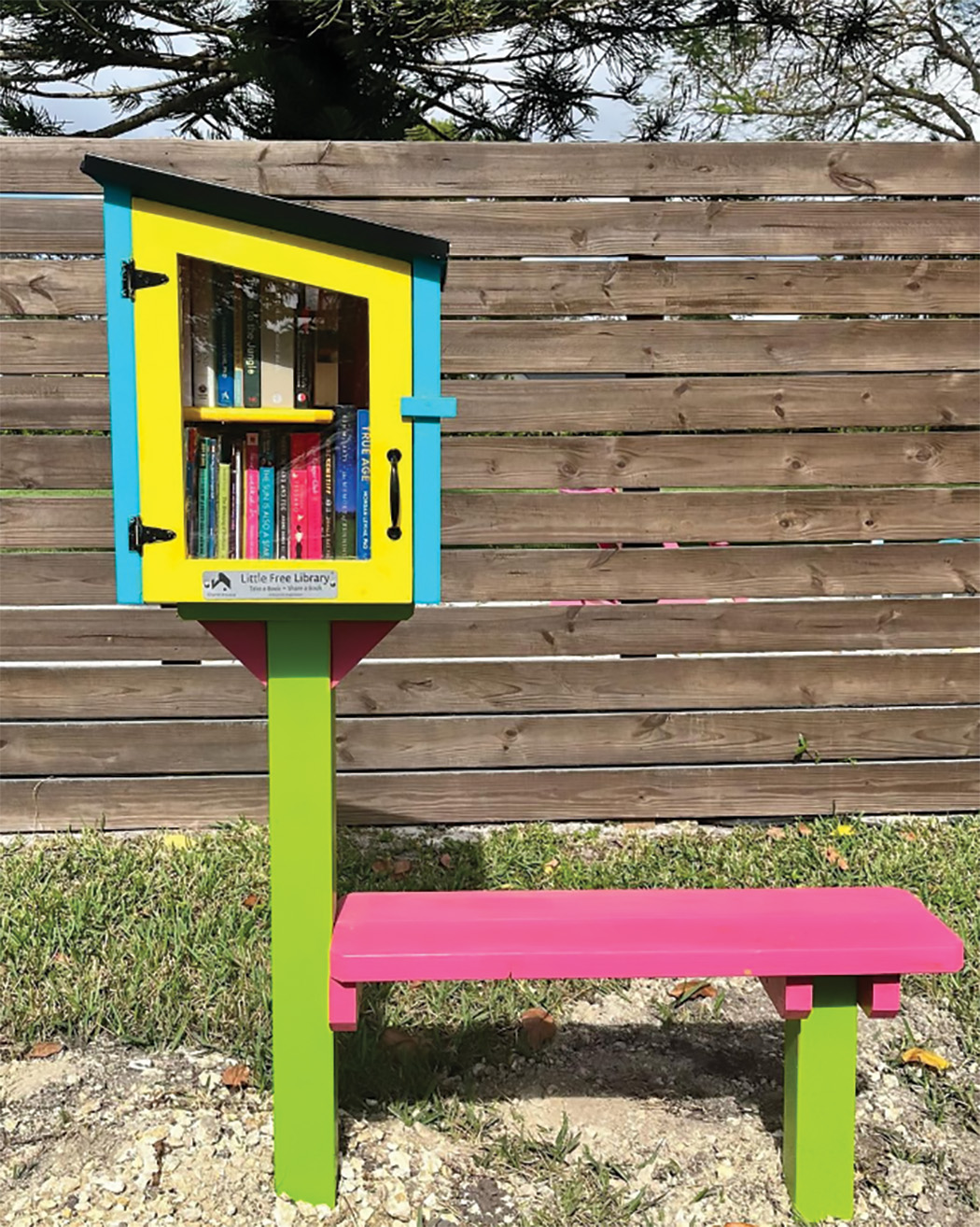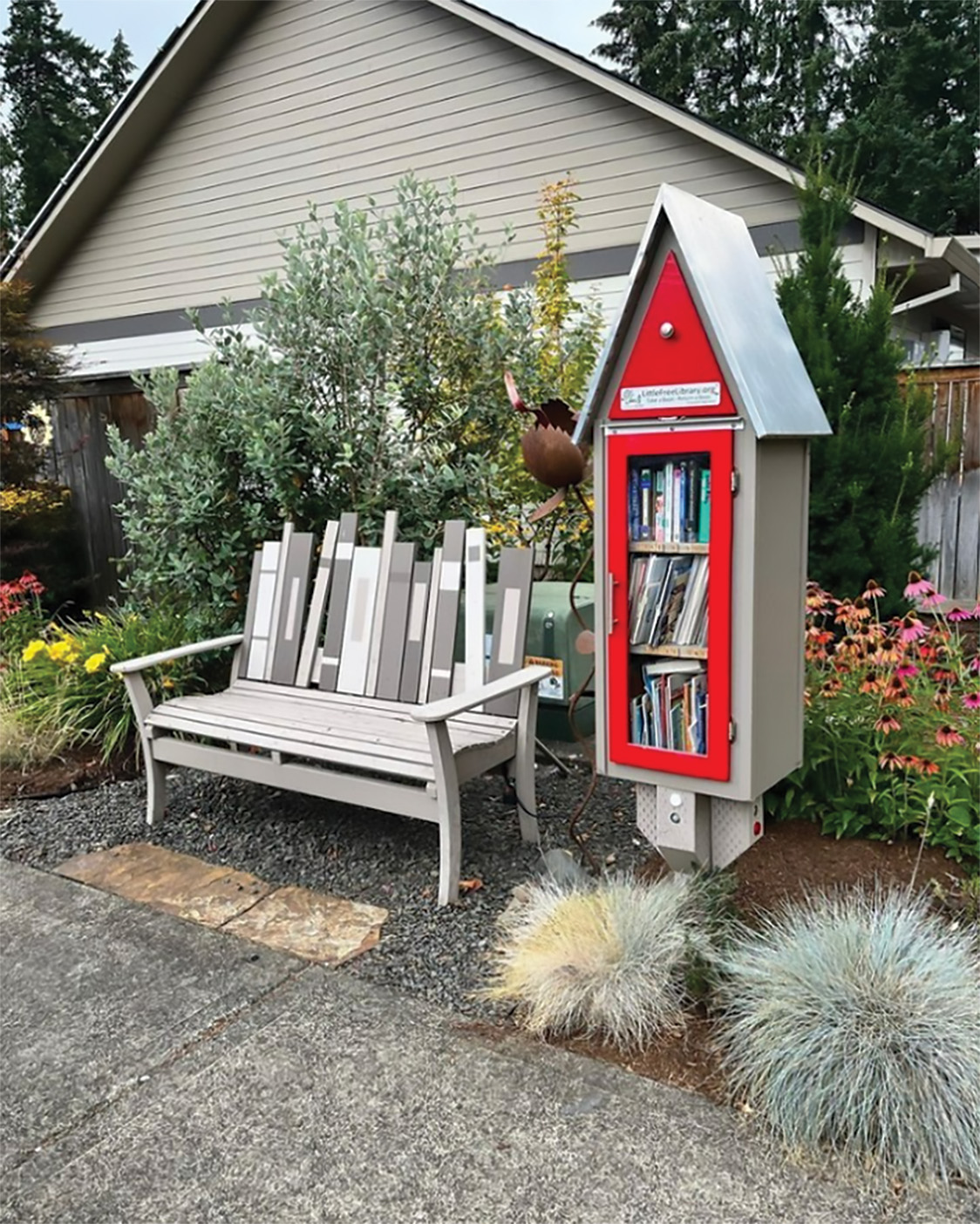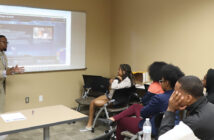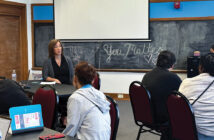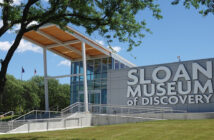What if I told you that there is one simple thing every community can do to increase the mental health, positive social interactions, feelings of safety, empathy, and good nature of its members? Would you believe me? It’s true. All it takes is a little bit of time, effort, trust and participation. All anyone has to do is install a Little Free Library®.
The first Little Free Library (LFL) was installed in 2009 by Todd H. Bol in Hudson, WI. Thereafter, the Little Free Library organization was established in 2012 as a 501(c)(3) in St. Paul, MN and since then, more than 150,000 little free libraries have been registered world-wide. Having an LFL in your community can increase access to books for kids and adults who desire to read (2 out of 3 children living in poverty have no books to call their own), increase feelings of safety and connection amongst neighbors, and positively impact the mental health and future success of readers.
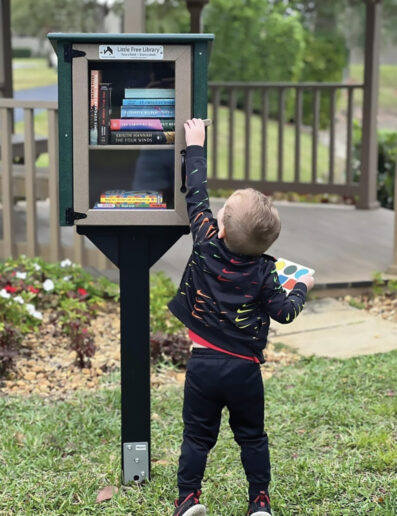
Little Free Libraries are an efficient and simple way to increase the good vibes and literacy of any neighborhood.
Literacy amongst children and adults is in decline. Over 30 million adults cannot read or write at a third-grade level and, for the last decade, literacy scores of early school-age children have been dropping with the number of kids describing themselves as “frequent readers” plummeting with age – the biggest drop happening at age nine with most never returning to the written word. The constant availability of digital media, especially video, has pulled readers from all ages away from the printed page (or screen) and toward non-nurturing forms of entertainment. As a result, literacy scores of children and teens have exhibited a steep drop.
Recent studies show that reading acts as a powerful mechanism for building resilience, developing empathy, growing emotional intelligence, enlarging capacity for critical thinking and finding inner strength in children. Literacy across all ages can change health and is a key mediator between socioeconomic inequality and health disparities. Youth who are frequent readers report higher confidence and a more positive mental outlook. The biggest predictor of reading success in youth is a parent or guardian who believes in reading and a constant access to new reading materials. A LFL can act as the access; the community can act as the guardian. It’s a win-win situation.
Take a Book, Share a Book
An LFL can be installed anywhere; however, the best location should be one that exhibits high foot traffic and high visibility in a place where it can be safely and legally installed. Examples include: parks, churches, city centers, schools, playgrounds, or homes centered in a community. Once a location has been determined, a LFL will need to be built by hand or purchased from the Little Free Library organization website: littlefreelibrary.org. One person should be designated as caretaker or steward of the library and the library should be registered with the Little Free Library organization. Registration provides benefits to library stewards and location mapping. (Registration costs $50 with proceeds supporting the Impact Library and Read in Color® programs.) Libraries hold on average between 20 and 100 books with an average of one book being exchanged per day.
For areas known as “book deserts” (lacking literature access) or in communities of need, the Little Free Library organization provides LFLs at no cost through the Impact Library program. To apply for one, visit little freelibrary.org/programs/impact-library/. Once an Impact Library has been granted, the library steward must abide by these rules:
- Maintain the library and fill it with books for at least one year.
- Hold one or more community activities or events in the first year.
- Submit a photo and story about the library’s impact.
- Respond to follow-up communications from the LFL organization.
- Respond to media requests when contacted.
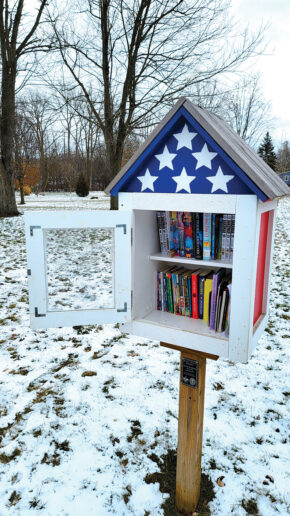
Currently, Genesee County holds over 40 official LFLs, three of which are Impact Libraries. This one is located in Grand Blanc’s Rust Park.
Little Free Libraries are an efficient and simple way to increase the good vibes and literacy of any neighborhood. Currently, Genesee County holds over 40 official LFLs, three of which are Impact Libraries. If you know of a book desert or neighborhood that would love an LFL on the corner or in the park, contact the Little Free Library organization at littlefreelibrary.org and get those pages turning toward a happy ending!

